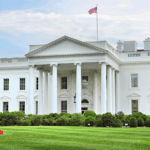Washington’s largest union of state employees is working on a plan to preemptively undermine a pending U.S. Supreme Court decision which could extend right-to-work protections to all public employees.
In September, the Supreme Court agreed to hear Janus v. AFSCME, one of the biggest labor cases in decades. Plaintiff Mark Janus, a state employee from Illinois, believes a state law requiring him to financially support a labor union against his will violates his First Amendment free speech rights.
In Illinois, like Washington and 20 other states, unions can have public employees fired for refusing to pay union dues or fees. If the court rules in Janus’ favor next year, as it should, every public employee in the country could finally decide for themselves whether to join and financially support a union.
But the fine print on a new membership form developed by the Washington Federation of State Employees (WFSE) essentially tries to get state workers to waive their constitutional rights in advance.
At the recent Washington Federation of State Employees (WFSE) convention, Lee Saunders, president of the American Federation of State, County and Municipal Employees (AFSCME), admitted there was a “very good chance” his union would lose Janus.
Saunders argued the way for government unions to survive post-Janus is to engage with public employees one on one. “AFSCME Strong means meeting folks where they are,” he said. “Treating them like they are individuals. Understanding that… people have different relationships with their union.”
A nice sentiment, if only he meant it.
Later in his address, Saunders praised WFSE for launching an “aggressive maintenance of membership card campaign,” explaining,
“The headwinds we face are strong. But we have a plan. A smart plan to build pride and power at the grassroots. To once again become a member-driven union. At the national union we call it ‘AFSCME Strong’ — you call it ‘100 Percent Union’—we are sticking with this plan, we are sticking with this program, we’re going to be as powerful if not more powerful even if they do (inaudible) right-to-work on us.”
In his remarks, WFSE president Greg Devereux similarly claimed, “We don’t need to lose members because of Janus.” WFSE’s website notes that, to avoid losing members after Janus, the union intends to “sign up members on the new 100% Union card.”
So what’s so special about the so-called “100% Union” card that allows it to defeat a Supreme Court decision?
The new membership card won’t help WFSE retain members because of its all-caps union platitudes, but because of the fine print at the bottom authorizing the state to withhold dues from the signer’s pay and limiting their ability to cancel the dues deductions to an entirely arbitrary, 10-day annual window period between 10 and 20 days prior to the annual anniversary of the day the employee first signed the card. The card also specifies that dues cancellations must be submitted in writing to both the employer and the union during the window in order to be processed. Good luck guessing the window period when the union keeps the card.
In other words, WFSE’s plan to keep the dues money flowing after Janus makes payment optional is to try to get state employees to sign away their constitutional rights ahead of time.
To help gin up enthusiasm, Saunders painted a dark picture of “enemies” like the Freedom Foundation out to “starve public services” by “going door-to-door ambushing members and telling them lies about our union.”
Ordinarily, unions call going door-to-door “organizing,” but when the Freedom Foundation talks to state employees about their constitutional rights, it’s an “ambush.”
The only one misleading state employees is WFSE, which, for example, tries to conceal the fact that it makes millions of dollars in political contributions with members’ dues.
Responding to a recent Public Disclosure Commission investigation, WFSE’s attorney admitted the union has a political account “funded and directed entirely by WFSE itself.” Additionally, union president Greg Devereux “has the final say for all expenditures” and “all contributions of money from WFSE” to the fund. How’s that for union democracy?
The Janus case offers government unions an opportunity to reinvent themselves and move away from the divisive political agenda they have prioritized for decades. Instead, all signs indicate unions like WFSE intend to continue hijacking the voices of public employees who disagree with them.
Saunders’ remarks repeatedly emphasized the importance of political action to the union. In light of Janus, he observed,
“Our challenge now is to make sure we have even more allies in Olympia; to make sure our friends are able to call the shots in the legislature… We’ve got a special election in Senate District 45 that is absolutely, absolutely critical. Control of the Senate hangs in the balance. I applaud you for the work you’re doing on behalf of Manka Dinghra, to get her across that finish line.”
But in doubling down on their aggressive political activism, unions can expect to continue alienating many of their members. As one convention goer observed in a post on WFSE’s Facebook page,
“Calling 40% of our membership stupid, racists, xenophobic, etc… does not build a union it divides it’s members! 50% of our nation, 40% of our membership are conservative. Deal with it and start focusing on union lunch box issues and stop attacking our members. If you don’t, then watch them walk away and then see how hard it will be…. without 40% of us in the room.” (Errors in original)
Hopefully, public employees not on board with their union’s agenda will soon be able to do something about it.











